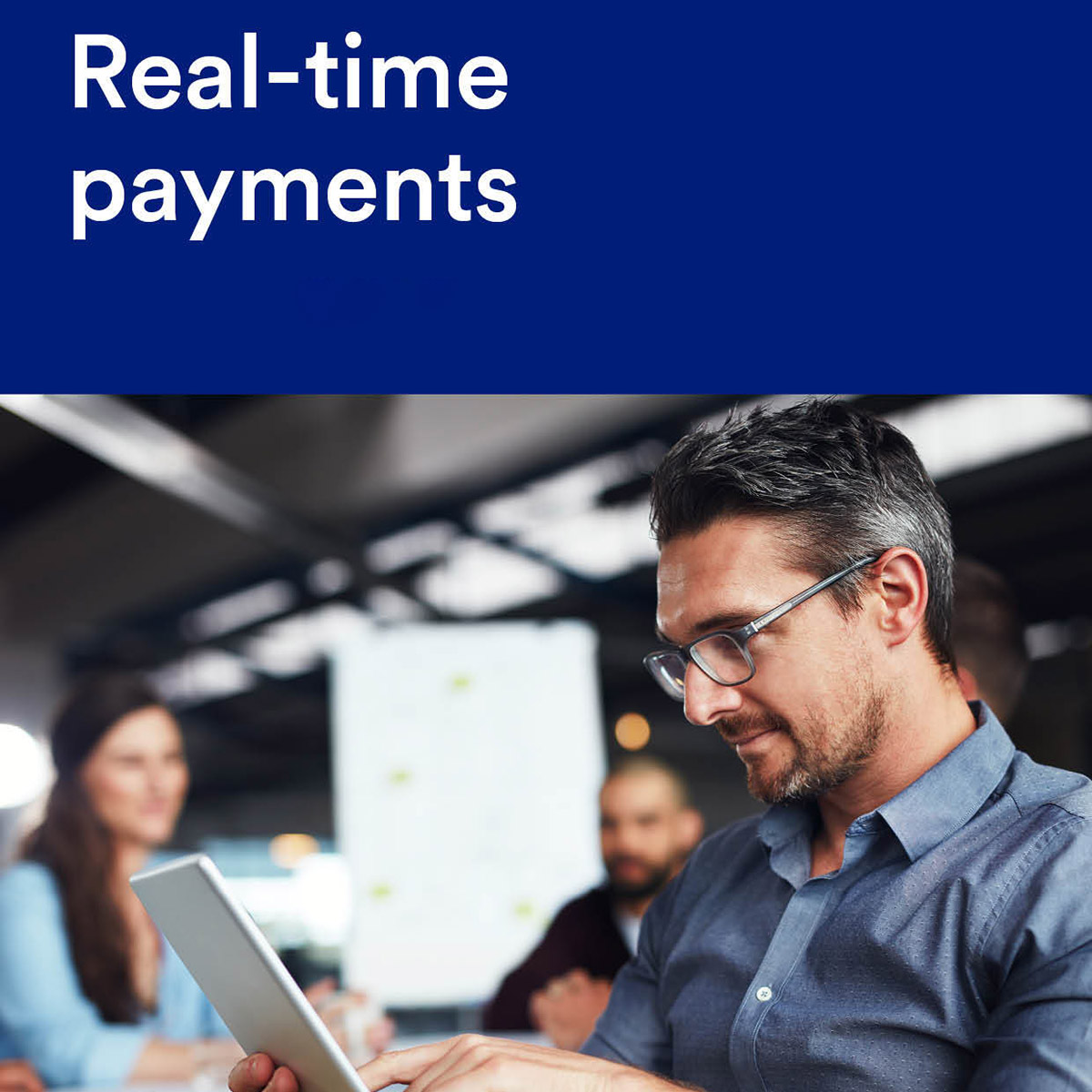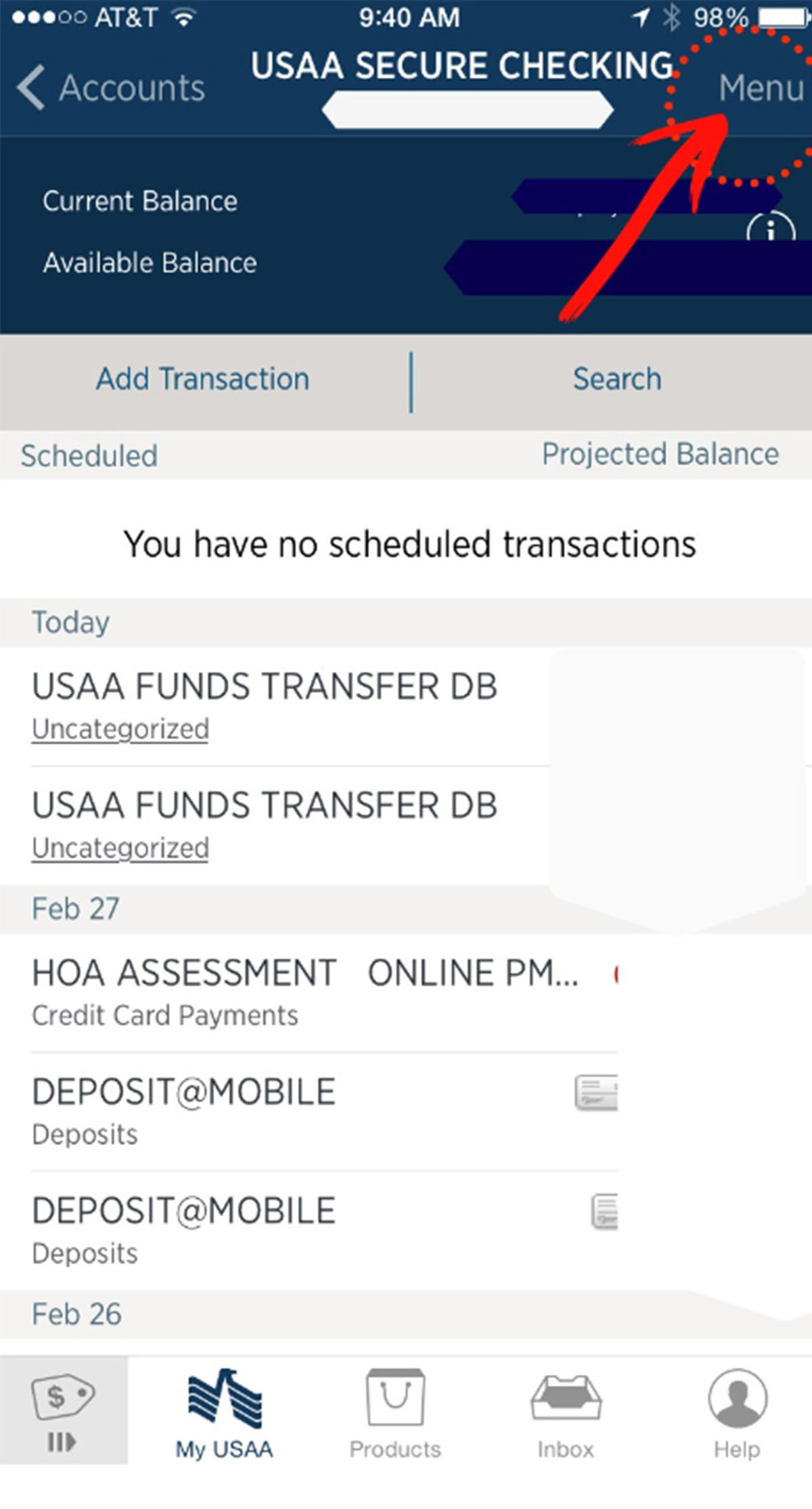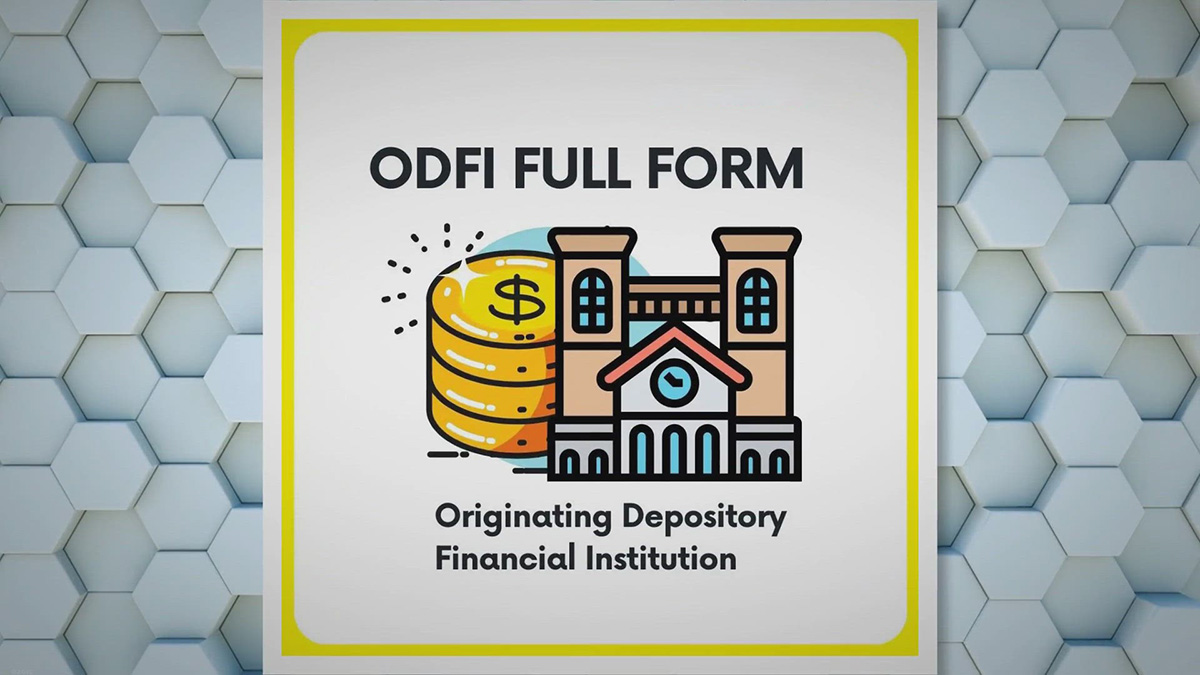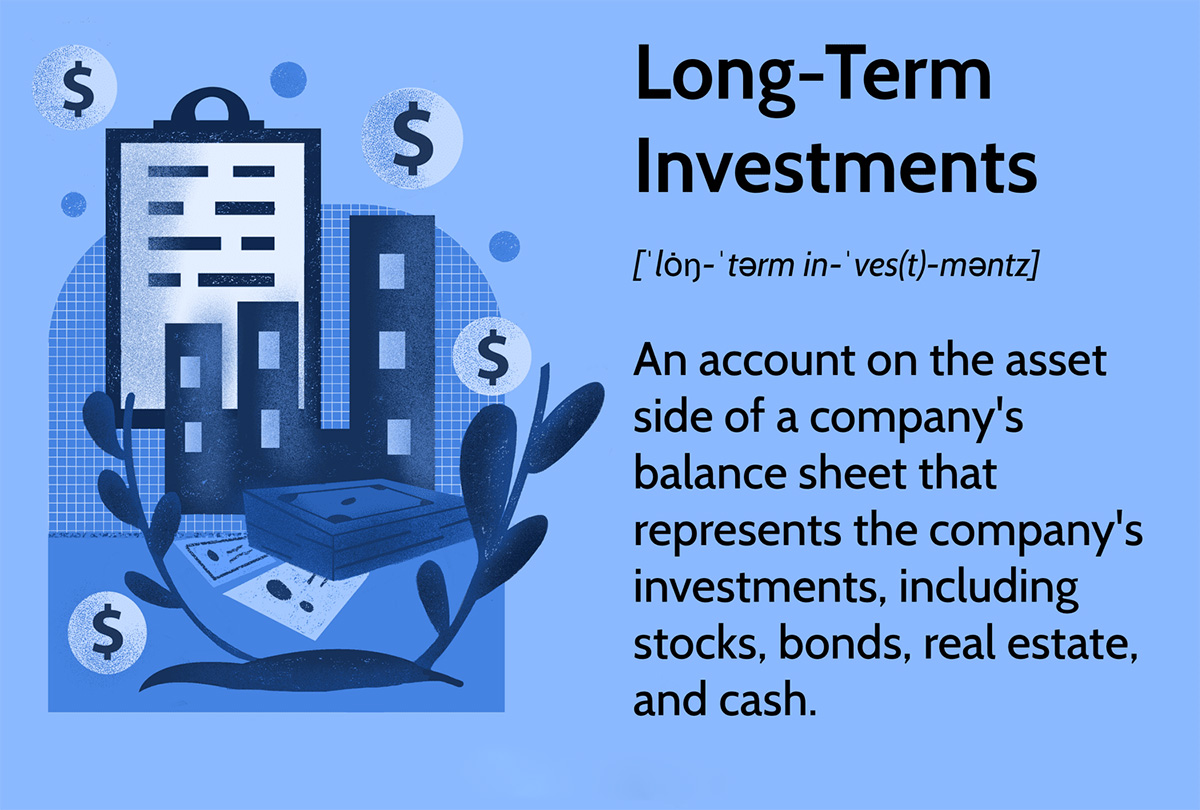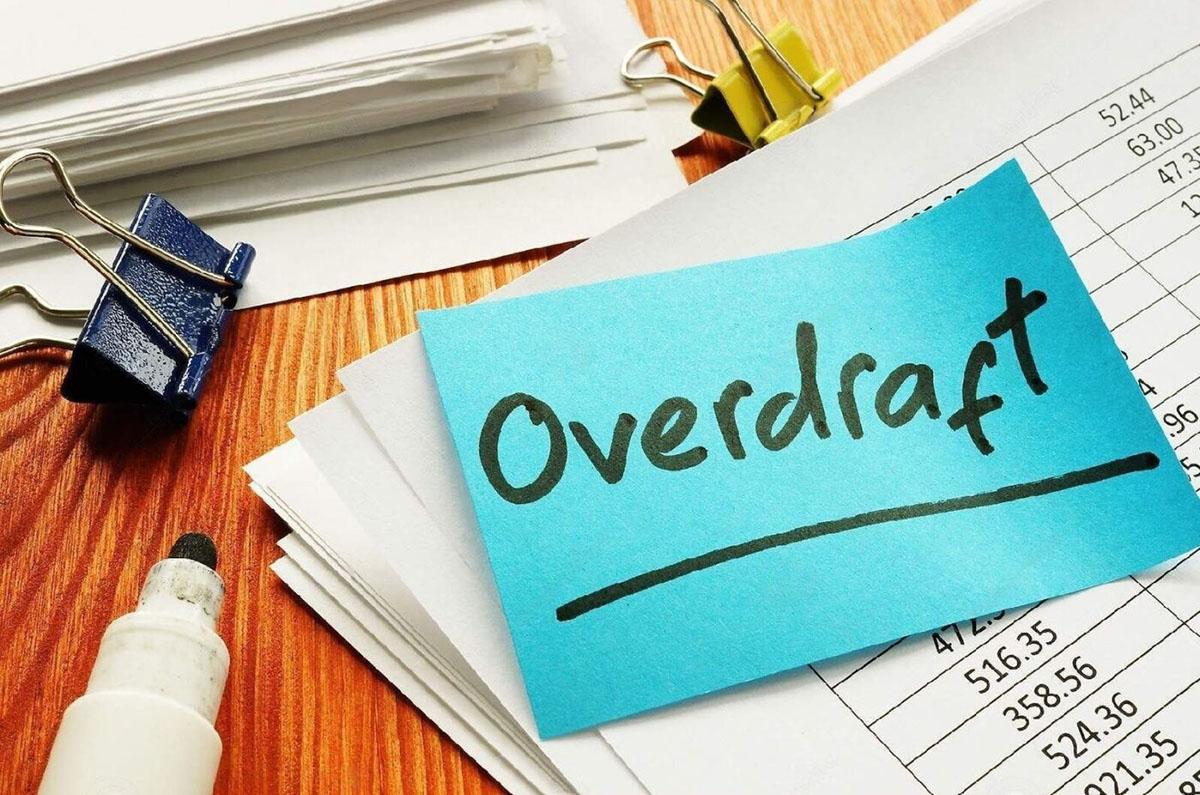

Finance
What Does NMLS Mean In Banking
Modified: March 1, 2024
Discover the meaning of NMLS in banking and its significance in finance. Gain insights into the role of NMLS in the financial industry and its impact on lending practices.
(Many of the links in this article redirect to a specific reviewed product. Your purchase of these products through affiliate links helps to generate commission for LiveWell, at no extra cost. Learn more)
Table of Contents
Introduction
The world of banking is complex, with various regulations and acronyms that can be confusing for the average consumer. One such acronym that you may come across is NMLS, which stands for Nationwide Mortgage Licensing System. But what exactly does NMLS mean in banking?
NMLS is a system that was established to standardize and streamline the licensing and registration process for mortgage loan originators (MLOs) in the United States. It serves as a central database that enables MLOs to apply for, renew, and maintain their licenses in an efficient and transparent manner.
This article will delve into the definition of NMLS in banking, its purpose, and the role it plays in ensuring consumer protection. We will also explore the requirements for mortgage loan originators in relation to NMLS, as well as the compliance and regulation associated with the system. Furthermore, we’ll discuss the benefits of NMLS in banking, as well as the challenges and limitations it may present.
By understanding the significance of NMLS in the banking industry, consumers can gain insight into the safeguards and regulations put in place to protect their interests when dealing with mortgage-related transactions. So let’s dive deeper into what NMLS really means in the context of banking.
Definition of NMLS in Banking
The Nationwide Mortgage Licensing System, commonly known as NMLS, is an online platform that was created by the Conference of State Bank Supervisors (CSBS) and the American Association of Residential Mortgage Regulators (AARMR). It was designed to provide a centralized and standardized process for the licensing and registration of mortgage loan originators (MLOs) in the United States.
NMLS serves as a comprehensive database that allows MLOs to apply for, manage, and maintain their licenses in an efficient and transparent manner. It acts as a single point of access for both state-licensed and federally registered MLOs, connecting them with the regulatory authorities responsible for overseeing their activities.
Through the NMLS platform, MLOs can complete their initial license applications, renew their licenses, update their personal and employment information, and fulfill continuing education requirements. The system provides a streamlined process by eliminating the need for MLOs to submit separate applications to each individual state they wish to conduct business in.
Furthermore, NMLS enables regulatory authorities to effectively monitor the activities of MLOs and ensure compliance with state and federal regulations. By maintaining a central repository of information, the system allows for greater transparency and consistency in the licensing and supervision of MLOs.
In addition to licensing and registration, NMLS also facilitates the tracking and reporting of mortgage loan originator activity. This includes recording any disciplinary actions, enforcement actions, or other relevant information regarding an MLO’s conduct and compliance history.
Overall, NMLS plays a crucial role in establishing a standardized framework for the licensing and registration of mortgage loan originators in the banking industry. It helps to promote transparency, accountability, and consumer protection by ensuring that MLOs meet the necessary qualifications and adhere to the regulatory requirements set forth by the relevant authorities.
Purpose of NMLS in Banking
The Nationwide Mortgage Licensing System (NMLS) serves several important purposes in the banking industry. Its primary objective is to enhance consumer protection by ensuring that mortgage loan originators (MLOs) meet the necessary qualifications and adhere to regulatory requirements. Let’s explore the key purposes of NMLS in banking:
Licensing and Registration: NMLS provides a centralized platform for MLOs to apply for and maintain their licenses. This streamlines the licensing process by allowing MLOs to submit their applications and supporting documentation electronically. It also enables regulatory authorities to efficiently review and process license applications, ensuring that only qualified individuals are granted licenses to engage in mortgage lending activities.
Uniformity and Standardization: NMLS promotes uniformity and standardization in the licensing and registration process. It establishes consistent criteria and requirements for MLOs, regardless of the state in which they operate. This helps to create a level playing field and ensures that all MLOs are subject to the same set of standards and regulations.
Transparency and Accessibility: The NMLS database provides transparency and accessibility to relevant information about MLOs. It allows consumers and regulatory authorities to easily verify the license status and background of an MLO, including any disciplinary actions or enforcement activities. This transparency fosters trust and helps consumers make informed decisions when choosing a mortgage loan originator.
Continuing Education and Training: NMLS also plays a crucial role in promoting ongoing education and professional development for MLOs. It requires MLOs to complete a certain number of hours of continuing education courses to maintain their licenses. This ensures that MLOs stay up-to-date with the latest industry trends, regulations, and best practices, thereby improving the overall quality of mortgage lending services.
Regulatory Compliance: NMLS facilitates regulatory compliance by providing a platform for MLOs to report their loan production activity and any associated fees. This allows regulatory authorities to monitor MLOs’ compliance with state and federal regulations, reducing the risk of fraudulent or unethical practices in the mortgage lending industry.
Overall, the purpose of NMLS in banking is to establish a standardized framework that enhances consumer protection, promotes transparency, and ensures the competency and compliance of MLOs. By streamlining the licensing and registration process and providing easy access to information, NMLS contributes to a more trustworthy and reliable mortgage lending environment for both consumers and industry professionals.
Role of NMLS in Ensuring Consumer Protection
The Nationwide Mortgage Licensing System (NMLS) plays a critical role in ensuring consumer protection in the banking industry. By establishing a standardized framework for the licensing and registration of mortgage loan originators (MLOs), NMLS helps safeguard consumers’ interests and promotes trust and transparency. Let’s explore the key ways in which NMLS contributes to consumer protection:
Verification of MLO Qualifications: NMLS requires MLOs to meet certain qualifications and undergo background checks before they are granted a license. This includes verifying their education, employment history, and any past disciplinary actions. By ensuring that only qualified individuals are licensed, NMLS helps protect consumers from dealing with unqualified or unethical MLOs.
Regulation and Oversight: NMLS serves as a central hub for regulatory authorities to monitor and supervise the activities of MLOs. It allows for the recording and reporting of disciplinary actions, enforcement activities, and any consumer complaints. By maintaining this information, regulatory authorities can take appropriate action against MLOs who engage in fraudulent or deceptive practices, thus protecting consumers from potential harm.
Transparency and Disclosures: NMLS provides consumers with access to information about MLOs they are considering working with. Through the NMLS database, consumers can verify an MLO’s license status, check for any disciplinary actions or enforcement activities, and view their employment history. This transparency enables consumers to make informed decisions and avoid fraudulent or untrustworthy MLOs.
Compliance and Regulations: NMLS ensures that MLOs comply with state and federal regulations by setting standards and requirements for licensing and registration. This includes completing continuing education courses, reporting loan production activities, and adhering to ethical and professional conduct standards. By promoting compliance, NMLS helps protect consumers from unethical or illegal practices in the mortgage lending process.
Dispute Resolution: In cases where consumers have disputes or complaints against an MLO, NMLS provides a mechanism for resolution. Consumers can submit complaints through the NMLS system, which are then forwarded to the appropriate regulatory authority for investigation. This allows for timely resolution of consumer issues and helps ensure that MLOs provide a fair and satisfactory experience for consumers.
Consumer Education: NMLS also contributes to consumer protection through its focus on education and outreach. The system provides resources and information to help consumers understand the mortgage lending process, their rights and responsibilities, and how to navigate potential risks. By empowering consumers with knowledge, NMLS helps them make informed decisions and protects them from potential scams or misleading practices.
In summary, the role of NMLS in ensuring consumer protection cannot be overstated. By establishing a standardized licensing and registration process, promoting transparency, and enforcing compliance with regulations, NMLS facilitates a safer and more trustworthy mortgage lending environment for consumers. It empowers consumers to make informed decisions, safeguards their interests, and acts as a regulatory mechanism to address any issues or misconduct that may arise in the mortgage lending process.
NMLS Requirements for Mortgage Loan Originators
In order to operate as a mortgage loan originator (MLO) in the United States, individuals must meet certain requirements set forth by the Nationwide Mortgage Licensing System (NMLS). These requirements aim to ensure that MLOs possess the necessary qualifications and skills to effectively assist consumers with their mortgage needs. Let’s explore the key requirements that MLOs must fulfill:
Educational Requirements: MLOs must typically complete pre-licensing education courses approved by the NMLS. The number of hours required may vary by state, but these courses cover topics such as federal laws and regulations, ethics, mortgage products, and loan origination processes. This education equips MLOs with the knowledge and understanding they need to provide accurate and compliant mortgage information to consumers.
Background Check and Character Assessment: As part of the licensing process, MLOs are subject to a background check. This includes verifying their personal and professional history, as well as any criminal records or financial irregularities. The purpose of the background check is to ensure that MLOs have a clean history and are of good character, establishing trust and reliability in their dealings with consumers.
Licensing Examinations: MLOs are required to pass both the national and state-specific components of the SAFE Mortgage Loan Originator Test. The national component covers general mortgage lending topics, while the state-specific component focuses on the laws and regulations of the particular state in which the MLO intends to operate. These examinations test the MLO’s understanding of key concepts and their ability to apply them correctly in real-world scenarios.
Fingerprinting: As part of the background check process, MLOs are required to submit their fingerprints to the NMLS for a criminal history check. This helps authorities identify any past criminal behavior that may pose a risk to consumers and allows for appropriate evaluation and decision-making regarding the issuance of licenses.
Continuing Education: Once licensed, MLOs must complete continuing education requirements on an ongoing basis. This typically involves completing a certain number of hours of approved coursework or training every year or every two years. Continuing education helps MLOs stay updated on industry best practices, regulatory changes, and emerging trends, ensuring they deliver reliable and competent mortgage services to consumers.
License Renewal: MLOs must renew their licenses through the NMLS periodically, usually on an annual or biennial basis. During the renewal process, MLOs must update their personal and employment information, pay the required fees, and attest to their compliance with all relevant regulations. This ensures that licenses remain current and that MLOs continue to meet the necessary requirements to operate in the mortgage lending industry.
It’s important for MLOs to familiarize themselves with the specific requirements of the state(s) in which they intend to conduct business, as there may be additional state-specific requirements beyond the basic NMLS requirements mentioned above.
Overall, the NMLS requirements for mortgage loan originators are designed to protect consumers by ensuring that MLOs are educated, qualified, and ethical professionals. By meeting these requirements, MLOs demonstrate their commitment to providing reliable and trustworthy mortgage services to consumers, enhancing the integrity of the mortgage industry as a whole.
NMLS Compliance and Regulation in Banking
The Nationwide Mortgage Licensing System (NMLS) plays a crucial role in ensuring compliance and regulating mortgage loan originators (MLOs) in the banking industry. It establishes a framework that promotes consistency, transparency, and accountability in the licensing and oversight of MLOs. Let’s explore the key aspects of NMLS compliance and regulation:
Uniform Licensing Process: NMLS provides a centralized platform where MLOs can complete their licensing applications and renewals. It establishes uniform criteria and requirements for licensing, ensuring that MLOs are subjected to the same standards regardless of the state they operate in. This consistency allows for streamlined oversight and compliance monitoring.
Regulatory Oversight: Regulators, including state regulatory authorities and federal agencies such as the Consumer Financial Protection Bureau (CFPB), utilize NMLS to enforce compliance and monitor MLO activities. Using the platform, regulators can access information about MLOs, track their licensing status, and review their compliance with state and federal regulations.
Record Keeping and Reporting: NMLS requires MLOs to report important information, including loan production data, fees charged, and any disciplinary actions or enforcement activities. This information is stored within the NMLS database, providing regulators with a comprehensive record of an MLO’s activities. Accurate record keeping enables regulators to identify patterns, detect potential violations, and take appropriate action when necessary.
Continuing Education Compliance: NMLS ensures that MLOs fulfill their continuing education requirements. MLOs must complete a designated number of hours of approved coursework to maintain their licenses. NMLS monitors and verifies compliance with these requirements, promoting ongoing professional development and ensuring MLOs stay informed about industry best practices and regulatory changes.
Licensing and Enforcement Actions: NMLS enables regulators to take licensing and enforcement actions against MLOs who violate regulations or engage in unethical practices. If an MLO fails to comply with licensing requirements, engages in deceptive or fraudulent activities, or otherwise breaches regulatory standards, regulators can issue warnings, fines, license suspensions, or revocations through NMLS.
Consumer Complaint Resolution: NMLS provides a mechanism for consumers to file complaints against MLOs. These complaints are tracked and forwarded to the appropriate regulatory authority for investigation and resolution. NMLS helps streamline the complaint process, ensuring that consumer grievances are promptly addressed and facilitating regulatory action against MLOs who fail to meet their obligations.
Compliance Audits and Examinations: NMLS facilitates compliance audits and examinations by regulators. Regulators can access an MLO’s records, including licensing information, continuing education completion, and production data, to evaluate compliance with state and federal regulations. These audits and examinations help identify potential areas of concern, ensure adherence to regulatory requirements, and hold MLOs accountable for their actions.
NMLS compliance and regulation in banking contribute to the overall integrity and trustworthiness of the mortgage lending industry. By establishing standardized licensing processes, promoting transparency, and enabling effective oversight and enforcement, NMLS helps protect consumers, uphold regulatory standards, and maintain a fair and ethical marketplace for mortgage loan originators.
Benefits of NMLS in Banking
The Nationwide Mortgage Licensing System (NMLS) offers several significant benefits in the banking industry. This centralized platform enhances efficiency, transparency, and consumer protection. Let’s explore the key benefits of NMLS:
Streamlined Licensing Process: NMLS simplifies the licensing and registration process for mortgage loan originators (MLOs). It provides a centralized platform where MLOs can complete their applications, submit documentation, and track the progress of their licenses. This streamlines the licensing process, reducing administrative burdens for both MLOs and regulatory authorities.
Uniformity and Consistency: NMLS establishes uniform standards and requirements for MLOs across different states. This promotes consistency in licensing criteria and application processes, ensuring that MLOs meet the same standards regardless of their geographic location. It creates a level playing field and fosters fair competition among MLOs in the banking industry.
Enhanced Transparency: NMLS provides transparency regarding the licensing status and background of MLOs. Consumers can easily access information about an MLO’s license status, disciplinary actions, and employment history. This transparency empowers consumers to make informed decisions when selecting an MLO, promoting trust and accountability in the mortgage lending process.
Efficient Monitoring and Oversight: Regulatory authorities can effectively monitor and oversee MLO activities through NMLS. The platform enables authorities to access information about MLOs, track loan production, identify potential violations, and enforce compliance with state and federal regulations. This proactive monitoring helps prevent fraudulent or unethical practices, protecting consumers and maintaining the integrity of the banking industry.
Continuing Education and Professional Development: NMLS requires MLOs to complete continuing education courses to maintain their licenses. This promotes ongoing professional development and ensures that MLOs stay updated on industry best practices, regulatory changes, and emerging trends. The emphasis on continuing education enhances the competency and knowledge of MLOs, ultimately benefiting consumers and improving the overall quality of mortgage lending services.
Efficient Complaint Resolution: NMLS provides a streamlined process for consumers to file complaints against MLOs. This mechanism ensures that consumer grievances are addressed promptly and appropriately. NMLS enables regulatory authorities to investigate complaints, mediate disputes, and take necessary enforcement actions against MLOs who violate regulations or engage in misconduct. Prompt resolution of complaints promotes consumer confidence and reinforces the integrity of the mortgage lending industry.
Improved Consumer Protection: The overarching benefit of NMLS is its contribution to consumer protection. By establishing standardized licensing processes, enforcing compliance with regulations, and promoting transparency, NMLS helps protect consumers from unqualified or unethical MLOs. It ensures that MLOs meet the necessary qualifications, adhere to ethical standards, and maintain the necessary licenses to provide reliable and trustworthy mortgage lending services.
In summary, the benefits of NMLS in banking are numerous. From streamlining the licensing process and promoting uniformity to enhancing transparency, monitoring, and consumer protection, NMLS elevates the quality and integrity of the mortgage lending industry. By providing a foundation for efficient operation, compliance, and oversight, NMLS contributes to a more trustworthy and reliable banking experience for both MLOs and consumers.
Challenges and Limitations of NMLS in Banking
While the Nationwide Mortgage Licensing System (NMLS) offers numerous benefits in the banking industry, it is not without its challenges and limitations. It is important to acknowledge these factors in order to better understand the potential drawbacks of the system. Let’s explore some of the major challenges and limitations of NMLS:
Varying State Requirements: Despite efforts to standardize licensing requirements, there are still variations in licensing criteria among different states. This can create additional complexity for mortgage loan originators (MLOs) who operate in multiple states, as they need to navigate through different sets of regulations and meet unique state-specific requirements.
Compliance Costs: NMLS compliance can be costly for both MLOs and regulatory authorities. MLOs bear the expenses associated with licensing fees, continuing education courses, and maintaining compliance with regulatory requirements. Regulatory authorities also incur costs related to administering the system, conducting audits and examinations, and providing support services. These compliance costs can put financial strain on smaller mortgage companies and individual MLOs.
Data Security and Privacy Concerns: As a centralized database, NMLS stores sensitive personal and financial information. This raises concerns about data security and privacy. While NMLS has implemented security measures to protect the data, there is always a risk of data breaches or unauthorized access. Efforts must be continuously made to mitigate these risks and ensure the privacy and integrity of the information stored within the system.
Limited Consumer Awareness: Despite the transparency provided by NMLS, many consumers may not be aware of the system or know how to access and interpret the information available. Consumer education efforts are crucial to ensure that individuals understand the significance of NMLS and utilize it as a resource to make informed decisions when choosing an MLO.
Regulatory Complexity: NMLS requires coordination and collaboration among multiple regulatory authorities, including state regulators and federal agencies. The complexity of regulatory oversight, particularly in a system involving various jurisdictions and authorities, can potentially lead to delays or inconsistencies in the enforcement of regulations. Ensuring consistent regulatory practices and efficient communication among regulatory entities remains an ongoing challenge.
Enforcement Limitations: While NMLS helps track and document enforcement actions against MLOs, it may not completely eliminate fraudulent or unethical practices. Some MLOs may find ways to circumvent regulations or engage in misconduct that goes undetected. Authorities need to constantly refine enforcement processes, conduct thorough audits, and encourage strong whistleblowing mechanisms to address any gaps in compliance monitoring.
Changing Regulatory Landscape: The regulatory landscape in the banking industry is subject to frequent changes at the state and federal levels. This can pose challenges for NMLS, as it needs to continually adapt and update its processes to align with new regulations. Keeping up with evolving regulatory requirements and ensuring seamless integration with emerging regulatory frameworks requires ongoing coordination and collaboration.
International Operations: NMLS primarily focuses on the licensing and oversight of MLOs within the United States. However, as the mortgage industry expands globally, there is limited coverage and coordination with international regulatory systems. This poses challenges for MLOs that engage in cross-border activities, as they need to navigate through additional regulatory frameworks and licensing requirements outside the purview of NMLS.
Despite these challenges and limitations, NMLS has made significant progress in standardizing licensing processes, enhancing transparency, and promoting consumer protection in the banking industry. Ongoing efforts to address these limitations can help improve the effectiveness and efficiency of NMLS, ultimately benefiting both MLOs and consumers in the rapidly evolving mortgage lending landscape.
Conclusion
The Nationwide Mortgage Licensing System (NMLS) plays a crucial role in the banking industry, providing a centralized platform for the licensing and oversight of mortgage loan originators (MLOs). Through its standardized processes and transparent framework, NMLS enhances efficiency, promotes consumer protection, and ensures regulatory compliance in the mortgage lending industry.
By establishing uniform licensing requirements, NMLS creates a level playing field for MLOs, regardless of their geographic location. It enhances transparency by providing consumers with access to crucial information about MLOs’ qualifications and disciplinary history. NMLS enables regulatory authorities to efficiently monitor and enforce compliance, reducing the risk of fraudulent or unethical practices. The system also emphasizes continuing education, promoting ongoing professional development for MLOs and ensuring they stay informed about evolving industry trends and regulatory changes.
While NMLS offers significant benefits, it is not without its challenges and limitations. Varying state requirements, compliance costs, data security concerns, and limited consumer awareness present areas for improvement. The complexity of regulatory oversight, enforcement limitations, changing regulatory landscapes, and international operations further contribute to the challenges faced by NMLS.
Overall, NMLS has made remarkable strides in fostering a more transparent, accountable, and consumer-centric mortgage lending industry. It empowers consumers to make informed decisions, safeguards their interests, and ensures that MLOs meet the necessary qualifications and adhere to regulatory requirements. The continuous efforts to address limitations and adapt to evolving regulatory landscapes will strengthen the effectiveness and efficiency of NMLS, further enhancing its impact on the banking industry.
As the banking industry continues to evolve, NMLS will play a vital role in maintaining a reliable and trustworthy marketplace for mortgage lending. It will remain an essential mechanism for supporting consumer protection, promoting regulatory compliance, and reinforcing the integrity of the mortgage industry as a whole.


